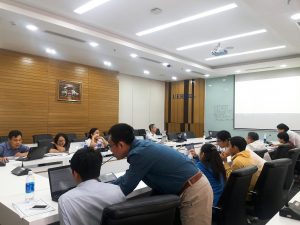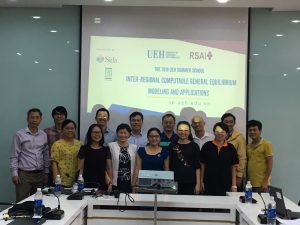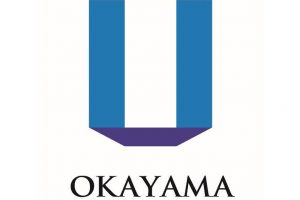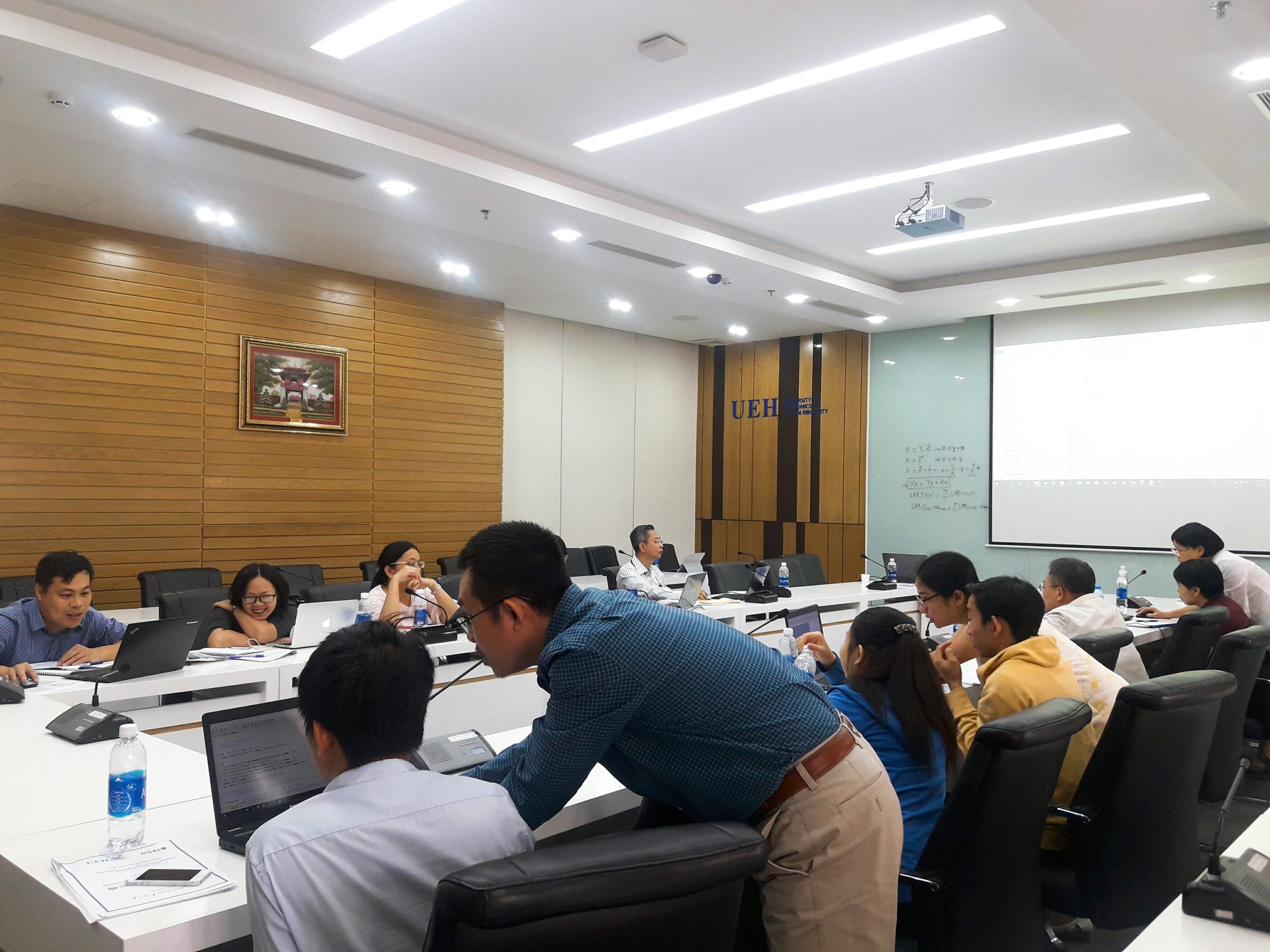
The 2018 UEH Summer School on CGE Modeling and Applications
The 2018 UEH Summer School on Computable General Equilibrium Modeling and Applications Aug 1-3, 2018
Nguyen Luu Bao Doan
School of Economics, University of Economics – Ho Chi Minh City
The UEH School of Economics and the Regional Science Association International jointly organized the 2018 Summer School of Computable General Equilibrium (CGE) Modeling and Applications from August 1 to August 3, 2018 at the University of Economics – Ho Chi Minh City, Vietnam. The event was also partly funded by the EfD Center – Vietnam. Professor Fu-Chuan Lai, the President of the Pacific Regional Science Conference Organisation (PRSCO) and of Chinese Regional Science Association-Taiwan also had a personal financial contribution to the cost of conducting the summer school. Dr. Nhi Tran of the Center of Policy Studies (CoPS) at Victoria University in Australia was the key resource person. Dr Nhi Tran is a Senior Research Fellow at the Centre of Policy Studies, Victoria University. Her expertise and research interests focus on policy analysis using national and regional computer general equilibrium (CGE) models. The Centre of Policy Studies (CoPS) at Victoria University, Melbourne has been the world leader in computable general equilibrium (CGE) modelling for over 40 years. The researchers at the Center have successfully created different CGE models (ORANI, MONASH, MMRF, TERM, USAGE, CHINAGEM, VU-National, VURM) to analyze economic issues, enabling policymakers to examine impacts of their political decisions.
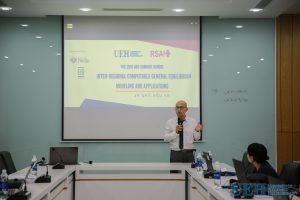
The summer school was an intensive 3-day training which provided hands-on experience of CGE and how to apply it in different contexts. 12 participants from Cambodia, Indonesia, Japan, Malaysia, South Korea, and Vietnam registered for the course but ten managed to complete it. Among the academic participants, three are six from Vietnamese institutions including three from the UEH School of Economics, and one from each of Fulbright University, Open University, University of Natural Resource and Environment. One faculty from the University of Malaya also joined the training. The remaining participants include graduate students and researchers working for the governments. Prior to the start of the summer school, two UEH faculty had attended two weeks of CGE training at the CoPS in Melbourne, Australia thanks to a grant by CoPS. The returned to work alongside Dr. Nhi Tran as teaching assistants during the training and helped the participants to employ simple CGE models for their policy analysis exercises and understand how other models being used.
In recent years, CGE modeling has emerged as a powerful tool which helps regional scientists and economists including environmental economists to examine impacts of government policies and climate change through a system of jurisdictions or industries. The technique takes advantage of statistical data and high computational capability of computers and is applicable in various field including agriculture, trade, labor, and migration/immigration. Due to its complex computational requirement, CGE modeling remained inaccessible to the majority of faculty and graduate students at the University of Economics – Ho Chi Minh City until this August. The course successfully introduced participants to the underlying theory and fundamental techniques of CGE modelling in general and regional modelling. They also learned how to use GEMPACK ™ software to understand and apply CGE models. Several participants consider deploying CGE models for their own research and in cooperation with CoPS researchers. For example, a faculty indicated that he would use the technique to investigate the impact of climate change on crop production, and rice production in particular, in Vietnam. Another faculty is developing a proposal which includes an objective to investigate the economy-wide and environmental implications of carbon tax recycling, or the so-called environmental fiscal reform, in Malaysia.

